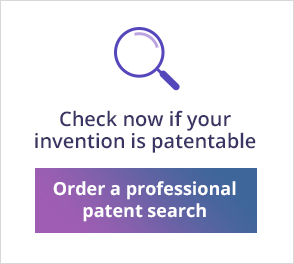
Is my business idea good? Here is how you find out
Whether you are an inventor, entrepreneur or a manager of an established business, while coming up with an invention (a new service, product or technology), there are a lot of commercial, technological & legal questions that come into mind and must be answered: What to do with a new product idea? how to bring a new product idea to market? Does my invention exist? How to patent an idea? etc.
But there is one question that needs to be answered before you start spending time and money: Is my business idea good? In this article we will discuss tools and techniques to answer this question.
Is my business idea good? Part 1: Basic questions that can help you establish your idea strength and weaknesses
You must first define your business idea /product/ technology by answering the following questions:
- What are the problems that your invention solves?
- How does your product solve those problems?
- What are the key features of your new product?
- Are there already products solving the same problem? If there are, in what way does your invention differ from them and why is it better?
Business and commercial question such as:
- Who are your customers?
- Where are your markets?
- Who are your competitors?
- What is your business end goal (develop a business or to just get a patent and sell it)
Last but not least are the legal questions:
- What makes an invention patentable? Is my invention patentable?
- Does my invention already exist?
- Are there enforced patents that can prohibit me from freely manufacturing and marketing my product?
- How to patent an idea?
- What are the costs of getting a patent right?
Answering the first and second sets of questions can be done using tools like business and marketing research. Answering the third set of questions involves contact with a patent professional and using tools from the intellectual property (IP) informatics sphere.
What makes an invention patentable?
First you must remember a few important basics about patents:
- Patent rights are territorial – To optimally patent an idea you must file and get a patent in each country you are interested in.
- Patent right lasts for 20 year – you must pay maintenance fees during that period (in each country you got a patent)
- In order to get a patent on an idea it must have:
- Novelty – there must not be any kind of publication, anywhere in the world that dicloses the invention.
- Inventive step – The invention must be Non-obvious to people skilld in the trade.
- Applicability and utility – In many important jurestections (US, UK, EU and others) you can not get a patent on a method for doing business by itself, only when combined with some technological system.
Conducting a patentability search
One way to answer the question “is my business idea good?”, is using the global patent and technology databases to find out if part or all your business idea is patentable(i.e – “does my invention exist?” – and does it have an inventive step over known products/ technologies/ patents). To do so you must conduct a patentability search.
In order to discover if there are enforced patents (in the relevant countries) that may prohibit the manufacture and use of the whole or part of your product, a freedom to operate search is needed.
Self research
First it is recommend to do a self research via free and open search tools such as:
- Google search & Google scholar for products and articles (remember – the invention must be completely new – any publication of it in any form anywhere might prohibit you from getting a patent)
- Google patents
- Espacenet – The database of the European patent office (EPO)
- Patentscope – The database of the world intellectual property organization (WIPO)
- National patent offices such as the american patent and trademarks office (USPTO)
A self search using these tools will help you get a basic picture of the prior art, i.e – what are the existing solutions to problems your invention solves, existing products and technologies in your invention field, who are your competitors etc.
Professional patent search
Secondly, it is recommended to contact a patent search company and to conduct one or few of the following searches
- A patentability search, in case you didn’t find any prior art that resembling your idea (patent, product, article etc.)
- Freedom to operate search – if you encountered enforced patents protecting the whole or part of your invention and still want to go ahead and manufacture/ import/ sell the product.
- Other types of patent searches like state of the art & Patent Landscape Report (PLR) – in cases you want to get a wide picture of your invention/ product field, from comercial, business, technological and IP aspects (what are the existing solutions/ technologies, what/ who/ where is my competition, what is the IP trends in the field etc.)
Patent search companies will be able to guide you to the most suitable search you need according to your end goal and self research results. After that they will use experienced, specially trained patent searcher who use non-free, paid databases/search tools such as-
- Orbit questel
- Patbase
- DWPI – Derwent World Patents Index
- TotalPatent
- STN
- Dialog
- WIPS
It is important to note that beyond the knowledge and expertise of a professional patent searcher, these paid databases/ search tools have a lot of data that one can not find in the free, open databases/ search tools. Furthermore they give the searcher unique and powerful search functions far exceeding those of any free database/ search tool.
Do not be too eager
One of the most common mistakes done by inventors and entrepreneurs is to rush to file a patent application (paying a lot of money) based on a self search just to get a rejection based on an old forigen patent from a patent examiner. A document that would be easily found ina professional paid database , or worse –
Spending time and money on patenting an idea and on development, manufacture and marketing just to get a letter telling you that there is an enforced patent on the whole or part of the product that prohibits you from using it.
Is my business idea good? part 2: Conclusions
After conducting the above searches the knowledge you gather will help you answer the question “is my business idea good?” from every aspect:
- Commercially – customers, markets, costs etc.
- Technologically – existing technologies.
- Legally – the chance of getting a patent, freedom to operate etc.
Good luck!

